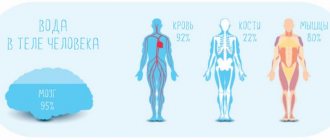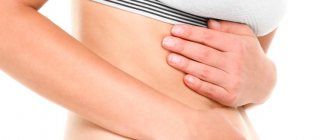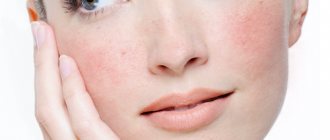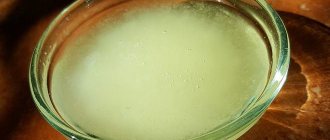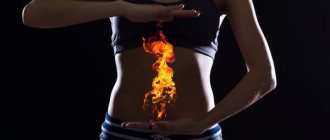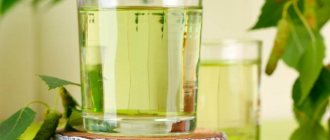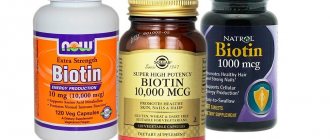Recently, freshly squeezed vegetable juices have become increasingly popular. It's no secret that vegetables are healthier than fruits. They contain much more valuable vitamins and minerals necessary for the normal functioning of the body. And of course, everyone has long known about the benefits of fresh vegetables, since any heat treatment noticeably weakens their medicinal properties. But a raw vegetable is far from a gourmet dish, and an alternative to it can be fresh juice made from it or using a group of products. Not the least of these fresh juices is beet juice. Beets are quite popular for both medicinal and cosmetic purposes; they are often included in diets for weight loss. It is practically harmless, so it can be used by small children. All her beneficial qualities were absorbed by the juice, prepared with her help. But there are still many questions about the benefits and harms of this product. From how many months can it be given to a child? Will it harm the baby? Can you drink it if you have high blood pressure? How to properly take and prepare freshly squeezed juice? What are the possible contraindications? The answers to all these questions can be found in this article.
Chemical composition of beet juice
Content:
- Chemical composition of beet juice
- Beneficial properties of fresh beetroot
- Preparing beet juice
- How to drink beet juice correctly
- Treatment with beet juice
- Beetroot juice for children
- Beet juice for women
- Use in cooking
- The benefits of beet juice for athletes
- Harm and contraindications
- conclusions
Fresh beet juice contains a huge amount of useful substances, vitamins and minerals. It contains 1 gram of protein and approximately 14 grams of carbohydrates. Its calorie content is about 61 kcal. It contains 1 gram of dietary fiber and a large amount of water - almost 83.4 grams.
Freshly squeezed beet juice has a rich vitamin complex. It contains B vitamins (riboflavin, thiamine, folic acid, pantothenic acid), and essential vitamin C, vitamin E, known for its antioxidant properties, as well as the much-needed niacin.
The mineral composition is represented by the content of potassium, calcium, magnesium, sodium, phosphorus, iron, iodine, chlorine and manganese.
Who is not recommended to drink beet juice?
Freshly squeezed beet juice is one of the record holders for the content of various organic acids, which are also in a form that is easily accessible to the human body. That is why consuming fresh beets is strictly not recommended for those who already have problems with the gastrointestinal tract (gastritis, ulcers).
The ability of beet products to lower blood pressure can harm hypotensive patients. People with this diagnosis, of course, can include a vegetable drink in their diet, but they need to drink little by little and preferably in a diluted form.
Fresh beetroot is contraindicated for those who have kidney and bladder stones. Having a diuretic effect, the drink can provoke the movement of stones, which will lead to renal colic and other painful consequences.
Even completely healthy people can experience the harm of beet juice if they abuse this product. Drinking undiluted fresh juice in large quantities can cause attacks of nausea, vomiting, diarrhea, as well as headaches.
Beneficial properties of fresh beetroot
Based on the rich vitamin and mineral composition, we can talk about the healing properties of the juice. Surely many people know its remarkable effect on the digestive system. After all, beet juice has long helped with such a delicate problem as constipation. This was primarily due to its excellent cleansing properties: it removes dangerous toxins from the body and rids the walls of blood vessels of fatty deposits and accumulation of heavy metal salts. For this ability, it can be considered a powerful prophylactic agent for the fight against atherosclerosis. It simply kills bad cholesterol and prevents its further accumulation in the body. Natural beet juice can act on free radicals and radionuclides, thereby cleansing cells and reducing the risk of cancer.
Due to the deep cleaning of blood vessels, the functioning of the cardiovascular system is stimulated. Blood flows much better through such vessels. Due to this, the load on the heart muscle is reduced and blood pressure is effectively lowered. However, you need to understand that it is impossible to get such an effect at once. In order to effectively reduce blood pressure, it is advisable to undergo a full course of beetroot therapy.
Red beet juice helps increase hemoglobin in the blood. It has a beneficial effect on hematopoietic processes, which is why it is often used for anemia or anemia. For pregnant women, it may be a complete replacement for iron-containing medications. Moreover, during pregnancy it is advisable to eat only natural ingredients, and in this case you can be absolutely sure of the absolute naturalness of the product.
Freshly squeezed beet juice can also be used as an external remedy. It is often used to gargle for sore throat and other throat diseases; it is dripped into the nose for sinusitis and adenoids. It is also used as a complete cure for runny nose in chronic rhinitis.
This is a powerful immune-restoring product. It is effective in the fight against viruses and bacteria, restores the body's natural protective function and improves immunity.
It is also useful for the female body, as it allows you to cope with delicate problems during menopause. And in this regard, beet juice can compete even with common hormonal drugs. He is also an indispensable assistant for women in matters of youth and beauty. With its regular use, the condition of the skin improves. She receives the maximum amount of valuable microelements, which contribute to her firmness, hydration and rejuvenation, and also prevents the appearance of wrinkles. This product is also often used in hair care. It is used to make hair masks that help get rid of dandruff, give it a well-groomed appearance, and add volume and shine.
Its beneficial properties are also noted by such a famous Russian doctor as Elena Malysheva. She recommends using it for weight loss and cleansing of toxins.
Other beneficial properties of beet juice include:
- actively participates in the process of improving vision;
- supplies oxygen to brain cells;
- is a good prevention of heart attacks and strokes;
- effective as a laxative and anti-worm medicine;
- relieves nasal congestion and various throat diseases;
- remarkably fights stress and depression, prevents the development of diseases of the nervous system;
- is an effective remedy for gastritis, hepatitis, cholecystitis, stomach ulcers;
- promotes deep cleansing of the kidneys, liver, bladder;
- an effective remedy for dissolving gallstones;
- used as a prophylactic for pancreatitis and other diseases of the pancreas.
- helps fight women's diseases such as endometriosis or mastopathy, and is often used for uterine fibroids.
- relieves inflammation of the prostate gland, is widely used for prostatitis;
- serves to increase potency in men.
This is not a complete list of the beneficial properties of this miraculous juice, because the list of them can be very long. In any case, even judging by this list, you can be sure that the benefits of drinking raw beet juice are enormous.
Risks and side effects
You may have noticed that after eating beets, your urine turns pink or reddish. This is completely normal, since about 15% of the world's population reacts this way to compounds in the root vegetable.
Beets contain oxalates, which interfere with calcium absorption in the body, causing calcium to accumulate in the kidneys in the form of stones. If you develop kidney stones as a result of too much calcium, your doctor will probably recommend reducing oxalates in your diet.
One study found that this effect may indicate problems with iron absorption. If you are concerned about your iron levels and react to beets by changing the color of your urine, ask your doctor to order an iron test, especially if you feel tired, lethargic, or have other symptoms of iron deficiency.
Preparing beet juice
The recipe for making fresh beet juice at home is quite simple. You can make it either in a juicer or blender, or in the usual way. To do this, you need to take a piece of gauze and a grater. It’s good if it’s not metal, but plastic, since beets tend to oxidize when they come into contact with metal. It is necessary to select the smallest holes on the grater so that the product in the process turns out to look like mush. Place it in cheesecloth and squeeze it out. Of course, you can’t make a lot of juice this way, so it’s much more convenient to use a juicer.
For cooking, you need to choose strong beets, rich red in color, without veins. Before use, the product must be thoroughly washed and peeled.
It is recommended to let natural freshly prepared juice stand for some time, usually it takes about two hours. The best place for this would be the refrigerator. Moreover, chilled juice is much easier to drink. And if you need it to make a smoothie, then it must be mixed with crushed ice.
The juice can also be consumed warmed. So it is often used in oncology, especially for the recovery of patients after chemotherapy.
Freshly squeezed beet juice can be stored in the refrigerator for a couple of days. If you need to increase its shelf life, then it must be pasteurized at high temperatures and stored rolled up in jars in a cool place. In the same way, you can prepare this product for the winter. It is difficult to say how rational such storage is. Since beets are sold all year round and canning them most likely does not make sense. But this option also has a right to exist.
How to make beet juice at home
At the first stage, you need to choose high-quality beets. It should be elastic-hard, burgundy, red or purple in color and oval-spherical (or simply spherical) in shape. It is recommended to choose fruits that are not too large, up to a maximum of 12 cm in diameter (this way the consumer will eliminate the high content of nitrates in the root crop). When cut, there should be no inclusions of white or black color (this is a sign of spoilage of the beets). The presence of green shoots indicates the “youth” of the vegetable, and therefore its juiciness.
The root vegetable must be washed well and peeled. A juicer is quite suitable for preparing concentrated beet juice. But it also happens that such equipment is not at hand. And that's no problem. You will need to take a fine grater and grate the root vegetable on it. Then the drink is squeezed out through clean gauze folded in several layers.
How to drink beet juice correctly
It is not enough to know how to properly prepare juice; you need to know how to use it correctly. You should not drink it fresh, immediately after preparation, as this can only harm the body. It can cause vomiting, stomach upset, dizziness and other unnecessary effects. In order for the juice to be beneficial, it is recommended to follow a few simple rules before using it:
- freshly squeezed juice must be left open in the refrigerator;
- the sediment that has formed and the foam that appears on the surface must be disposed of;
- you need to start using small doses, starting with a teaspoon of the product and gradually increasing the portions;
- beet juice is usually not drunk in its pure form, it is usually mixed with carrot or apple juice;
- drink juice about three times a week twenty minutes before meals;
- drinking juice in its pure form should not exceed more than 50 ml of drink per day;
- duration of use of a pure product is about 14 days, cocktails with other fruits or vegetables - no more than three months;
- It is best to drink beet juice in the first half of the day; it is not recommended to drink it at night.
There are several more recommendations to the existing rules. For example, when making cocktails based on a fresh product, there is no need to settle other juices; it is recommended to add them to the settled juice in freshly prepared form. For such a cocktail, you need to dilute 1 spoon of beet juice with ten spoons of another vegetable juice. In subsequent times, the share of beet product must be increased. If there are no negative reactions, then it is usually diluted in a ratio of one to three, or one to four.
Don't just stop at carrot and apple products. In summer, it will be good to dilute beetroot concentrate with cucumber, cabbage, tomato or squash juice. They can be used either individually or as a mixture of various components.
Cooking recipes and recommendations on how to drink fresh product correctly
Having looked at how freshly squeezed red beet juice is beneficial for the body, we will further analyze how and in combination with what other products you can drink it.
With honey
For this recipe you will need to mix beet juice with honey in a 1:1 ratio. Recommendations on how many tablespoons of fresh beet juice you should drink vary from person to person . It is usually recommended to take the resulting product in the amount of 1-2 tablespoons 3 to 5 times a day before meals.
This method has proven itself to be effective for high blood pressure and insomnia. Excellent for cleaning blood vessels. The course of treatment is two weeks.
Juice with honey for insomnia can be preheated slightly to 40 degrees.
With apple
It is used for atherosclerosis, low hemoglobin levels, neuroses, high blood pressure, fragility of blood vessels and impaired elasticity. For hypertension, you should drink 100 ml of the product in the morning . In other cases, the juice should be divided into two doses. It is not recommended to drink the drink after five in the evening. The course of treatment is three weeks.
- Apples should be used soft, sweet varieties. The beets should be thoroughly cleaned and rinsed with running water.
- The juice is made at the rate of 3 apples 1 beet. It is important to follow the manufacturing technology. To begin, squeeze the juice out of the beetroot and put it in the refrigerator for 1-2 hours.
- Then freshly squeezed apple juice is added.
Take small sips, no more than 50 ml at a time.
With cucumber
It is used to cleanse the body of waste and toxins and is used for weight loss. To prepare you will need 1 beet and 2 medium sized cucumbers .
Fresh cucumber is added to the infused beet juice and mixed.
For weight loss purposes, it should be taken 20 minutes before meals . The optimal course is a month.
This recipe can also be varied by adding celery and lemon.
With celery
The product has a pronounced detoxifying effect . Lowers blood pressure, helps cope with stress, blocks the formation of cancer cells and promotes weight loss.
To make it you will need to take 1 small beet, 1-2 stalks of celery and 2 carrots.
- Initially, the juice is squeezed out of the beets and placed in the refrigerator to infuse.
- After which freshly squeezed juice from carrots and celery is added to it (the benefits and harms of beet and carrot juice and how to take the drink, read here).
You can drink 100 ml, mainly in the morning. The course of treatment is two weeks.
Treatment with beet juice
Traditional medicine widely uses this product for the prevention and treatment of various diseases. With it you can cure even chronic forms. Avicenna also advised using drops based on warm beet juice for otitis media or ear pain. He simply dripped them into his ears and the pain went away. He also recommended using it to do cleansing enemas. This enema remarkably cleansed the intestines of various bacteria and waste products. It makes absolutely no difference whether your stomach acidity is high or low. Beetroot juice is a universal product and can be consumed at any acidity level. Numerous reviews from patients and doctors indicate that treatment with beet juice is quite effective and, if used correctly, will not cause harm to the body. Of course, before using juice to get rid of ailments, you should consult a doctor. You cannot self-medicate.
For hemorrhoids
The usefulness of beet juice has also been proven for hemorrhoids. It can help stop bloody discharge. To do this, you need to drink it on an empty stomach, 50 ml three times a day.
For liver diseases
Beetroot juice is quite an effective remedy that helps with liver cirrhosis and other serious diseases. The recipe is simple: drink half a glass of a mixture of cucumber, carrot and beet juice before meals twice a day. This will give a good cleansing effect and help the liver work smoothly.
For diseases of the gastrointestinal tract
Fresh beet juice is also indicated for stomach ulcers, gastritis, and inflammation of the duodenum. For constipation, it is recommended to eat about 150 grams of boiled beets on an empty stomach in the morning, or drink a mixture of beet juice and kefir. To do this, add three tablespoons of juice to a glass of kefir.
For hypertension
To get rid of the dangerous symptoms of hypertension, a mixture of beetroot and carrot juices in a one-to-one ratio helps. This folk remedy significantly lowers blood pressure. You need to take it before meals, twice a day, 150 grams. To improve the taste and enhance the medicinal properties, you can add a tablespoon of honey to the mixture. It is advisable to adhere to this treatment for at least two weeks, for a more effective result – a month.
With a runny nose
Modern medicine recognizes that treating a runny nose with fresh beet juice is quite effective. However, it should be remembered that instilling undiluted juice into the nose can provoke attacks of burning in the mucous membrane, so before use it should be diluted with warm boiled water approximately 1:2.
For the first time, you can try dropping a drop into each nasal passage. If no negative reactions occur, the single dose can be increased to three or four drops. This drink relieves swelling of the mucous membrane and thins thick mucus, which helps relieve nasal congestion.
You can also use it with garlic and vegetable oil.
For sinusitis
Before treating sinusitis with folk remedies, you should consult with an ENT doctor about the advisability of such treatment. Since such an illness may require more highly qualified help: a course of antibiotics or physiotherapy. In general, beet juice for sinusitis in folk medicine brings undeniable benefits. Beets have an antimicrobial effect, and thanks to this, they effectively cleanse the maxillary sinuses of pus and mucus. To do this, you need to instill 3-4 drops of beetroot juice diluted with boiled water into your nose in a 1:1 ratio.
For sore throat
For inflammatory processes in the oral cavity, gargling or drinking warm water will be effective. To do this, you can use both the juice of fresh and boiled vegetables. Many reviews indicate that the following recipe helps very well with a sore throat: grate raw beets and add a tablespoon of vinegar per glass of the product. After leaving it to infuse, squeeze out the beets and gargle with the resulting infusion.
For oncology
It has been scientifically proven that beets contain large quantities of substances that prevent the appearance of cancer cells. Even in the modern medical industry, there are drugs intended for the treatment of cancer patients, which contain a concentrated extract of fresh beet juice.
Of course, you cannot rely only on traditional methods of treatment for such diseases. They should be used as additional therapy to the main treatment complex. In this case, beet juice can prevent tumor development and reduce the side effects of radiation and chemotherapy. This product also increases the level of hemoglobin in the blood. With its help, the body is deeply cleansed of free radicals, toxins, radionuclides and other decay products.
The following recipe will be effective in this situation: mix half a glass of freshly squeezed beet, carrot and lemon juice with half a glass of cognac (or homemade moonshine) and the same amount of honey. Wrap the container containing the prepared mixture with parchment or foil and place it in the refrigerator for a week. Before use, it is recommended to stir the medicine with a wooden spatula. Drink a tablespoon three times a day half an hour before meals or an hour after.
The same composition can be used for children: a teaspoon or dessert spoon, depending on age. All ingredients must be natural and high quality.
When coughing
Beetroot juice is also effective as a cough medicine. For children it can be used in the form of syrup. To do this, you need to cut out the middle of the beets, add sugar there and put it in the microwave for 5 minutes. The liquid formed inside the beets should be consumed one teaspoon every two hours. Taking this medicine is especially helpful for persistent coughs. With this treatment you can eliminate it in just two days. It also helps with pneumonia and bronchitis.
For diabetes
Beetroot juice can be consumed for type 2 diabetes. But it is better to use boiled beet juice for this. Since during this process, beets lose purine, which is especially contraindicated in this disease, and the sugar content in it is reduced by almost half.
Benefit for health
Increases physical performance
Beetroot juice helps increase oxygen levels and also reduces the amount of oxygen that muscles need to perform optimally. This means that beets give the body energy, performance and endurance.
A 2012 study published in the Journal of the Academy of Nutrition and Dietetics suggests that consuming nitrate-rich beets improves running performance in healthy adults. The experiment involved 11 healthy and athletic men and women who underwent a double-blind, placebo-controlled crossover study.
Volunteers completed two five-kilometer treadmill trials in random order. One was 75 minutes after eating baked beets, and the other was 75 minutes after eating a cranberry dessert as a eucaloric placebo. Based on paired tests, the scientists concluded that the speed after taking beets was generally higher (by 5% in the last 1.7 km). However, no difference in heart rate was observed during the study, but the rating of perceived exertion was lower after beets.
Another study, published in 2014 in the journal Medicine and Science in Sports and Exercise, found that high-nitrate beet juice improved performance in cyclists using altitude-simulating devices.
Taking beets is an effective way to increase performance when working in higher terrain. Nine competitive male recreational cyclists were given 70 ml of beetroot three hours before training, which consisted of a 15-minute ride at 60% of maximum work speed.
Is a powerful antioxidant
Beetroot juice is believed to have powerful therapeutic effects and helps treat a number of clinical diseases associated with oxidative stress and inflammation. Its components, primarily betalain pigments, can have antioxidant, chemotherapeutic and anti-inflammatory effects.
According to the study, beet root may serve as a beneficial agent for strengthening intrinsic antioxidant defenses and protecting cell components from oxidative stress. When certain types of oxygen molecules travel freely throughout the body, they are called free radicals. They negatively affect our body.
Oxidative damage is associated with many illnesses, including heart problems, cancer and dementia. For this reason, regularly consuming foods rich in antioxidants is so important.
A scientific review conducted in 2015 found that betanin, present in beets, is the most effective inhibitor of oxidative stress.
Betanin's impressive antioxidant properties appear to be due to its exceptional ability to enrich electrons and scavenge highly reactive radicals targeting cell membranes. Scientists suggest that beet juice and dietary supplements with it protect DNA, lipids and protein structures from oxidative stress.
Lowers blood pressure
Since beets are rich in the natural chemical nitrates, our body uses a chain reaction to convert them into nitric oxide, which promotes blood circulation and normalizes blood pressure.
A 2012 study published in the British Journal of Nutrition found that, in small doses, beets showed significant antihypertensive effects. The results of this study suggest that consuming beets significantly reduced systolic (when the heart muscles contract) and diastolic (when the heart muscles relax) blood pressure over 24 hours compared to a control group that consumed water.
Another 2012 study included 15 men and 15 women who received 500 grams of beetroot-apple juice or a placebo juice. When evaluating the results, it became clear that according to measurements taken 6 hours after drinking beetroot-apple juice, it reduced systolic pressure.
Moreover, the results for men showed a more significant decrease in blood pressure than for women.
A 2021 study examining the functional properties of Beta vulgaris in treating cardiovascular and metabolic diseases also suggests that beet juice can significantly lower blood pressure and is associated with a reduced mortality rate.
Thus, the scientists concluded that beet juice is one of the most effective foods for lowering blood pressure in healthy adults without requiring drastic dietary changes.
Helps eliminate toxins
Beetroot juice can naturally cleanse the blood. It helps detoxify the body and cleanse the bloodstream of heavy metals, toxins and debris due to the presence of the compound glutathione. Glutathione is important for cleansing the liver and other organs involved in digestion.
Additionally, the fiber in beet juice helps cleanse the intestinal tract of debris and toxins while maintaining healthy, regular bowel movements.
Beetroot betalains, involved in the formation of glutathione, activate the body's ability to neutralize toxins and make them water soluble. Thus, they help eliminate harmful substances in the urine.
Beetroot juice is also an effective way to cleanse the liver and support its function. This has been proven in animal studies evaluating the protective effect of the root vegetable extract on the liver. Maintaining optimal liver function is essential as it filters our blood and is the body's primary detoxification mechanism.
It tirelessly removes all harmful substances from the blood, produces bile necessary for digesting fat, breaks down hormones and accumulates essential vitamins, minerals and iron.
If liver function is impaired, vegetable juice is especially useful, as it is more easily absorbed by the body. Beetroot juice helps reduce acid levels in the body and create an optimal pH environment.
Supports Cognitive Function
Drinking beet juice increases blood flow to the brain in older adults, which naturally helps slow the progression of dementia and protect yourself from Alzheimer's disease and other ailments.
Bacteria in the mouth convert nitrates from beet juice into nitrites. These nitrites help dilate blood vessels, which increases the flow of blood and oxygen where it is lacking.
As we age, areas of the brain appear that are poorly perfused, meaning that not enough blood flows through these areas. This can lead to cognitive impairment, including dementia.
The study, conducted by Wake Forest University researchers at the Translational Science Center, examined the effects of dietary nitrates on 14 adult volunteers over the age of 70 over a four-day period. MRI scans taken at the end of the study period showed that a high-nitrate diet increased blood flow to the white matter of the frontal lobes in older adults. This area of the brain is associated with degeneration that leads to dementia and other cognitive impairment.
In 2021, a study also presented by scientists from Wake Forest University noted the effects of beet juice taken before exercise. The study involved 26 men and women over the age of 55 who did not exercise, had high blood pressure, and were taking no more than two medications for hypertension.
For 6 weeks, participants drank a beetroot juice supplement three times a week one hour before a 50-minute moderate-intensity treadmill walk. Half of the volunteers received a supplement containing 560 mg of nitrates, while the others received a placebo containing a small amount of the substance.
The researchers found that in the beet juice group, "neural networks in the brain resembled those of younger people, suggesting increased neuroplasticity achieved through the combination of exercise and beet juice."
Fights diabetes
Beets contain the antioxidant alpha lipoic acid, which has the ability to lower glucose levels, improve insulin sensitivity, and prevent changes caused by oxidative stress in patients with diabetes. A study published in 2020 found that beet juice supplementation was effective in controlling diabetes and insulin homeostasis.
Scientists believe that alpha lipoic acid "blocks free radicals, chelates transition metal ions, increases nutrients such as cytosolic glutathione and vitamin C, and prevents toxicity associated with their loss." This means that beet juice can reduce oxidative stress, which can destroy healthy cells in the body.
Beet juice contains a large amount of dietary fiber, which “collects” toxins and removes them from the digestive system naturally. When the pancreas doesn't produce enough insulin, or when cells can't process it properly, diabetes can occur. High-fiber foods like beets help slow the absorption of glucose, giving the body more time to process insulin.
Rich source of folic acid
Numerous sources indicate that folic acid is essential for the formation of new cells, in particular, it plays an important role in DNA copying and synthesis. Folic acid deficiency can lead to anemia (insufficient formation of red blood cells), weakened immunity and poor digestion.
Women who are pregnant or breastfeeding, people with liver disease, people taking diabetes medications, heavy drinking, and kidney dialysis patients are at risk of developing folate deficiency. Foods high in this substance, including beets, lentils, spinach and chickpeas, promote a healthy pregnancy, prevent cancer and maintain cardiovascular health.
Beetroot juice for children
At what age should children be given juice? Is it allowed for infants? Your pediatrician can answer these questions. It is worth remembering that the red dye found in beets is quite a strong allergen. Therefore, before introducing it into your child’s diet, consult your doctor.
If the child is not susceptible to allergies, then you can start administering it to children closer to 6 months of age. It cannot be given in its pure form; it must be diluted with water or another juice that has already been offered to the baby. You need to start introducing the product with a few drops, constantly increasing the dose. Typically, in children's practice, beet juice is used for constipation or to improve blood. The urine may turn red. This is a normal phenomenon and there is no need to be alarmed.
Beet juice can be used to treat children's runny nose, and it is also effective for adenoids. But you should know that instilling a concentrated product into the nose of an infant is not recommended, as it can cause severe burning and inflammation of the mucous membrane. It is better to use it for children over 6 years old, diluted with water or squeezed out the juice of boiled beets, which are less concentrated than fresh.
For adenoids, you can use drops with beet juice and honey in a 2:1 ratio. Place two drops into your nose about five times a day.
Basic recommendations for eating beets
Now let's look at the basic recommendations for consuming beets. First, if you want to get a full set of vitamins and microelements that beets are rich in, you should remember that they are best absorbed in the form of juice. But since it also has cleansing properties, it is better to start taking beet juice with a volume of 100-200 ml, gradually increasing it if the body does not respond to this procedure with vigorous cleansing processes.
If the goal is to cleanse the intestines and gastrointestinal tract, beets can be consumed as a salad, but there are two important points. First, it is better to cut it larger so that it can mechanically act on the intestinal walls, cleansing them. Second, only raw beets have cleansing properties; boiled or, even worse, fried, loses its hardness, and with it its cleansing properties.
To enhance the cleansing effect, it is better to eat beets separately from other foods. However, you can mix it with other vegetables. Since vegetables are not digestible, mixing beets, for example, with cabbage or carrots, will not harm the cleansing process. As for juice, it is better to drink it in its pure form, without mixing (or mixing with water), 30-40 minutes before eating the rest of the meal. Drinking at least 200 ml of beet juice will saturate your body with vitamins.
For sinusitis
Also, beetroot juice can heal a runny nose and sinusitis: it is enough to instill 5-10 drops of fresh beetroot juice into the nose to speed up healing from these ailments. You should not instill too much juice if you are not ready for a powerful process of cleansing the nasopharynx. This is effective, but not very pleasant in terms of sensations.
For problems with the gastrointestinal tract
Coarse beet fiber will be useful for constipation and digestive problems. It actively stimulates intestinal motility, which helps solve many problems. Beetroot juice can help with skin problems: acne, rashes, insect bites. It is enough to apply beet juice to the problematic surface of the skin and do not wash it off for at least 30 minutes.
For the treatment of blood diseases
Beetroot juice is the best remedy for any blood diseases. It is advisable to drink beet juice three times a day, 100-200 ml at a time. In this mode - drink juice for a week, then a week of rest, and again a week of juice treatment. The situation with any blood disease is likely to improve significantly.
For diabetes
As mentioned above, beets can be dangerous for diabetes, but at the same time, they can also help in its treatment. The only question is the dose and correct use. Therefore, it is better to consult a naturopathic doctor regarding this issue, who can suggest the correct dosage and treatment features.
For colds
As we already mentioned at the very beginning, colds are associated with the accumulation of mucus in the body and in particular in the intestines. A good dose of raw beets can quickly clear mucus from the intestines, thereby easing the course of a cold and speeding up healing. You can also gargle with beetroot juice.
Enemas with beet juice
can help overcome pathogenic microflora. The enema is done in a ratio of 50 ml of juice per liter of water.
In general, beets and beet juice are excellent means for comprehensive cleansing of the body and healing from many ailments. But, as always, one should caution against fanaticism. Too intensive treatment and cleansing, as a rule, ends in sad consequences. Therefore, we start with small doses and listen to the reaction of our body. And remember - our health is only in our hands. No one but us can make us healthy. Nobody except us.
We draw your attention
to the fact that it is advisable to eliminate any problem at three levels: physical, energetic and spiritual. The methods contained in the article do not guarantee recovery. The information provided should be considered as capable of helping based on the experience of traditional and modern medicine, the multifaceted action of herbal remedies, but not as a guarantee.
Beet juice for women
The antitumor properties of beet juice are especially good here. It helps with diseases such as endometriosis and cysts, and promotes positive results with fibroids and mastopathy. It also helps get rid of the side effects of taking hormonal medications during menopause, promotes a regular monthly cycle and relieves pain symptoms.
For mastopathy, it is recommended to mix 3 tablespoons of juice with one spoon of honey. Spread this mixture on a cabbage leaf and apply it to your chest.
This juice is also good as a cosmetic product. Based on it, various masks are made for the face and hair, which improve their condition. With the help of beet juice you can perfectly moisturize and tighten the skin, get rid of freckles and age spots. To properly care for your facial skin using beetroot juice, you need to remember a few simple rules:
- Do not apply masks to damaged skin;
- It is not recommended to leave the mask on the skin too long, as beets can stain your face.
Mask for normal skin
For this mask you will need:
- fresh beet juice - 1 tablespoon;
- cucumber juice - 2 teaspoons;
- heavy cream - 1 tablespoon.
Mix all ingredients until a homogeneous mass is formed. Apply to previously cleansed skin, excluding the area around the eyes. Keep for 15 minutes, then rinse with warm water. Cream can be replaced with milk.
Mask for dry skin
For this mask you need:
- beet juice - 1 tablespoon;
- cream - 1 teaspoon.
Mix everything and apply to face. Keep for 15 minutes. After completing the procedure, rinse off any remaining product with warm water.
Beet juice and henna for hair
You can even dye your hair with beet juice. Since beets are a natural dye, mixing them with henna can give you a beautiful burgundy color. But it is worth noting that the result may differ markedly from the one you want to get, since natural dyes are an unpredictable thing. Not only beets, but also henna from different packages can give a different shade. The color may especially differ on dark or dyed hair.
To prepare the paint you will need:
- henna - 1 sachet;
- hibiscus tea - 3 bags;
- beets - 3 pieces.
The beets should be a rich burgundy color without streaks. You need to squeeze the juice out of it; it is better to use a juicer for this. Boil the beet juice in an enamel pan so that it does not oxidize when it comes into contact with metal. As soon as it boils, you need to remove it from the stove and throw in the hibiscus. After about 5 minutes, steam the henna with warm “beetroot tea”. If the mass turns out to be very thick, you can dilute it with hot water. Apply the mixture to dry hair, cover with film or a plastic bag and wrap with a towel. Leave the paint on for about an hour. You can wash it off only with plain warm water. The use of shampoo is allowed only after two days. This dye is suitable for those who do not want or cannot use chemical dyes to color their hair.
Beet juice for weight loss
Due to its cleansing properties and low calorie content, beet juice can also be used for dietary purposes. In this case, you need to use a mixture of different juices and drink it on an empty stomach in the morning for several weeks. Beetroot juice should be added in small quantities. Even 20 ml of product is enough to completely cleanse the liver and intestines. The beneficial substances contained in beet juice can burn fat, regulate lipid metabolism and reduce cholesterol.
Use in cooking
Beetroot juice, of course, has wide application in the culinary field. It is used to prepare various sweets as a natural coloring agent to give dishes a beautiful rich red color. Often, cream for confectionery is prepared on its basis and added to the dough. Sometimes used as a salad dressing. You can also use it to prepare very healthy beet kvass, very tasty beet juice, as well as the famous red velvet cake.
Beetroot juice
To prepare you will need:
- raw beets - 200 grams;
- granulated sugar - 100 grams;
- lemon - 1 piece;
- water - 1 liter;
- flour - 150 grams.
Grate the beets and squeeze out the juice. Pour hot water over the cake, boil and cook for about 20 minutes. At the end of the process, add sugar, lemon juice and freshly squeezed beet juice. Place back on the stove and bring to a boil, strain and pour into a pitcher with ice.
Best materials of the month
- Coronaviruses: SARS-CoV-2 (COVID-19)
- Antibiotics for the prevention and treatment of COVID-19: how effective are they?
- The most common "office" diseases
- Does vodka kill coronavirus?
- How to stay alive on our roads?
The benefits of beet juice for athletes
Recent research by scientists has proven that beet juice is also beneficial for athletes. It is simply irreplaceable in those sports that require endurance. Beets are very rich in nitrates, which they absorb from the soil. Those, in turn, are converted into nitrites in the human body, which ultimately form nitric oxide. It is he who, thanks to him, dilates the blood vessels and increases blood flow. And the more oxygen gets into the muscle tissue, the more energy they will produce and, accordingly, work tirelessly.
Therefore, beetroot juice is recommended for athletes, especially before important competitions.
Nutritional properties
Beet juice contains nitrates. You have probably heard in the past that they can be very dangerous when consumed in foods such as processed meats. However, nitrates found in unprocessed foods such as beets are very beneficial.
In the human body, inorganic nitrates are converted into nitric oxide, which relaxes and dilates blood vessels. Beets get nitrates from the soil, as do leafy greens like lettuce and kale.
In addition to nitrates, one serving of raw beets (about 136 grams), from which beet juice is obtained, also contains:
- 58.5 calories
- 13 g carbohydrates
- 2.2 g protein
- 0.2 g fat
- 3.8 g fiber
- 148 mcg folic acid (37% of RDA)
- 0.4 mg manganese (22% of RDA)
- 442 mg potassium (13% of RDA)
- 6.7 mg vitamin C (11% of RDA)
- 31.3 mg magnesium (8% of RDA)
- 1.1 mg iron (6% of RDA)
- 0.1 mg vitamin B6 (5% t RDA)
- 54.5 mg phosphorus (5% of RDA)
- 0.1 mg copper (5% of RDA)
Vegetable protein: where to look for it?
Harm and contraindications
In addition to its advantages and beneficial qualities, beet juice also has minor contraindications. It should not be used for diabetes, kidney disease and urolithiasis, gout, osteoporosis and rheumatoid arthritis, as well as for peptic ulcers of the duodenum and stomach. It is not recommended to use it if you have low blood pressure, or if you have an individual intolerance to the product. There have been cases where a woman drank a glass of beet juice and became very ill: vomiting, nausea and weakness appeared. It is also contraindicated for newborns and small children due to the high allergenicity of beets.
Indications and contraindications for use
Despite the fact that beets are not classified as medicinal plants, at least no drugs are made from them, the therapeutic effect of the juice from this root vegetable is extremely high.
The main indications for use are:
- Increased blood viscosity, varicose veins.
- Prolonged colds, reduced immunity. It can be used for a runny nose and sore throat in the form of nasal drops and as a gargle (you can find out how to treat sore throat with beets, and also see recipes for medicinal compositions here).
Vitamin C deficiency.- Stress.
- Atherosclerosis – complex treatment and prevention.
- Memory and attention disorder.
- Constipation.
- PMS.
- High blood pressure.
- Anemia.
- Carrying out chemotherapy (more about how beets help with cancer can be found here).
There are few contraindications for juice:
- Urolithiasis disease.
- Hypotension.
- Peptic ulcer of the stomach and duodenum.
It should be noted that pregnancy is not a contraindication for drinking this juice.
conclusions
Fresh beet juice is famous primarily for its medicinal and healing properties. It is recommended by doctors as an excellent cure for many diseases, and reviews from numerous patients who have experienced the magical effect of this juice testify to the veracity of these recommendations. This healing drink can even fight cancer cells and is used in modern medicine for the treatment and prevention of cancer. Its beneficial properties have not been spared by the cosmetology industry. With its help, various masks for the face and hair are prepared, which are very popular among women. It can also be used for weight loss, since beet juice has good cleansing properties and is also able to break down fats. And recently he has proven himself well in sports. Athletes before important competitions are recommended to drink beet juice to improve heart function and increase endurance, speed and power. This juice is contraindicated for people suffering from serious kidney and liver diseases, as well as those with low blood pressure and diabetes.
More fresh and relevant information about health on our Telegram channel. Subscribe: https://t.me/foodandhealthru
We will be grateful if you use the buttons:
Benefits and harms for the human body
Let's look at the benefits and harms of red beet juice. The effect this healing drink has on the body is simply priceless. Due to its rich composition and its beneficial properties, beetroot drink is widely used in both folk and traditional medicine .
How useful:
- Maintains an optimal level of hemoglobin in the blood due to its iron content (read about how beets affect human blood here).
- It copes well with swelling and constipation due to its pronounced diuretic and laxative effect (you can learn more about the prevention and treatment of constipation in adults and children with the help of beets in this article).
- Improves complexion and skin condition in general.
- It has a beneficial effect on blood vessels, thereby lowering blood pressure.
- Helps cleanse the liver, kidneys and blood vessels (you can learn how to cleanse the body with beets here).
- Lowers “bad” cholesterol (read more about whether or not you can eat beets for pancreatitis and cholecystitis and in what form, here).
- Improves the condition of the body as a whole, increases its endurance.
- Due to the low glycemic index, it can be used for weight loss.
- Increases the amount of oxygen that flows to the heart and muscles by dilating blood vessels. The effect is due to the high betaine content.
- Strengthens the immune system.
Unlike root vegetables, juice has a more mildly expressed laxative effect.
In addition, the medicinal properties of freshly squeezed beetroot juice for the nose are well known : it treats various diseases of this organ.
If the juice from the root vegetable is consumed correctly, it will not cause harm to the body.
However, difficulties often arise in selecting the optimal dose, so we will dwell in more detail on possible undesirable consequences.
Harm from drinking beetroot juice:
- The appearance of an allergic reaction in the presence of increased sensitivity of the body. Not often, but this is also possible. Therefore, it is recommended to start drinking juice in a dosage of 30-50 ml at a time. This will avoid possible negative consequences.
- Drinking juice in excessive quantities can cause nausea, stomach pain, diarrhea and even headaches.
As can be seen from the list, if there is any harm from beets, it is very little. You just need to be smart about the amount consumed and conduct a preliminary test to identify a possible allergic reaction.
